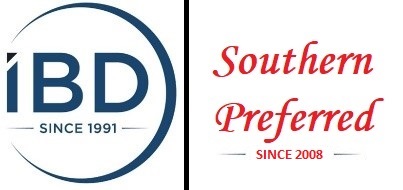We offer Professional Liability / Errors and Omissions insurance and General Liability insurance for professional Home Inspectors in Texas at very competitive rates. Please fill out an application and we will send you a quote as soon as possible. If you have any questions, feel free to give us a call.
Beginning September 1, 2007, TREC requires Home Inspectors to have professional liability insurance to renew their license. We provide this coverage through A. M. Best rated A companies. We have the following limits available:
- $100,000 per Claim/$100,000 Aggregate
- $100,000 per Claim/$300,000 Aggregate
- $300,000 per Claim/$300,000 Aggregate
- $500,000 per Claim/$500,000 Aggregate
- $500,000 per Claim/$1,000,000 Aggregate
- $1,000,000 per Claim/$1,000,000 Aggregate
We offer a $1,000, $2,500, and $5,000 deductible for most of our errors and omissions policies. The higher limit policies are only available in $2,500 and $5,000 deductibles. Our general liability deductible is $500 no matter which limits you choose. Lower deductibles increase the premium of your insurance, so take this into consideration when choosing which is right for you.
Frequently Asked Questions:
1. What are the minimum requirements to do inspections in Texas?
TREC requires that you carry $100,000 per claim and $100,000 aggregate of professional liability (errors and omissions) insurance. General liability is not required by the state of Texas.
2. What does per claim and aggregate mean?
The Per Claim limit is the amount of coverage you have for any one claim. The Aggregate limit is your total limit for the duration of your policy (1 year). For instance, if you have $100,000/$100,000 in coverage, and you had a claim for $95,000, you would have $5,000 in remaining coverage for the remainder of your policy. Please be certain that you are always carrying an appropriate amount of insurance for the work you are doing.
3. What does errors and omissions insurance cover?
Professional liability (errors and omissions) covers you for most liability issues related to your inspection of a property that can arise after you have completed your inspection. This does not cover you for damage you cause.
4. What does general liability insurance cover?
General liability insurance covers you for any damage you could cause to the property or to others while you are doing your inspection.
5. Do I need general liability insurance?
Some inspectors carry general liability for peace of mind. Others carry it to fulfil requirements from real estate agents or builders in order to do inspections on new construction. If you are inspecting new construction in any phase of development, chances are you will need to carry it. Check with your builder or real estate contact to see how much you need to carry before purchasing general liability insurance to ensure that you are properly insured.
6. Do you send the paperwork to TREC?
Yes, we send all of the appropriate paperwork to TREC on your behalf in order to speed up the process of obtaining or renewing your license. In most cases, we send the proof of insurance to TREC by the end of the next business day. Please renew early to ensure that your requirements to obtain or renew your license are fulfilled.
7. Can I finance my policy?
Yes, we offer financing through Impact Finance in order to ease the burden of your insurance premium. It is available if you need it, and there are no credit checks or prerequisites. Please give us a call or write us if you have a question regarding financing. Please also note that once the finance agreement has been signed and the down payment has been paid, all remaining payments go directly to the finance company. Please do not submit your monthly payments to us, or you will not get credit for payments.
8. How do I get started?
All you need to do is fill out an application, and we’ll send you a quote by email within 2 business days. Once we have sent you a quote, the only thing left to do is pay. There is no additional paperwork to fill out unless you need financing. If you do not renew your policy in a timely manner, you will lose your retroactive date which is important to you in the event that a claim is filed against you.
9. What is the retroactive date?
The retroactive date is the first date where your coverage began without any lapses in coverage. This is important to you because errors and omissions policies are claims made policies, and the retroactive date determines is there is coverage. With claims made policies, it isn’t about who insured you when the inspection took place, it’s about who is your current insurance carrier when the claim comes in. We carry over your retroactive dates from your previous policy to ensure that you are covered for claims that may have happened before your policy with us began. You should always be aware of your retroactive date especially when switching insurance companies. You can find this date on your declarations page of your policy. It does not appear on your proof of insurance. If you need your declarations page, please contact your agent and ask them to send it to you.
